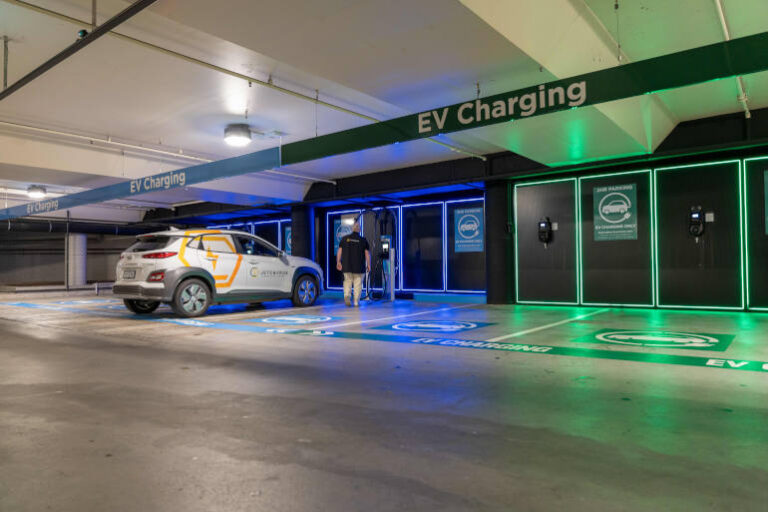Commercial landlords and developers are being urged to take advantage of the growing electric vehicle (EV) opportunity, with new analysis from UK charge point operator Be.EV showing that EV charging infrastructure can significantly boost property values, rental yields, tenant retention, and ESG performance.
The EV Value Index highlights a compelling financial case for landlords. Properties with EV chargers reported a 23% increase in rental income and a 40% reduction in vacancy rates. Rightmove data supports this trend, showing EV-ready properties can attract rental premiums of 10% to 15%. One business park recorded a 20% rise in leasing enquiries after installation, and another commercial office saw lease renewals climb 15%.
Over a 25-year term, a charging hub of 12–15 bays can generate up to £1.25 million in revenue, while many charge point operators (CPOs) offer fully funded installation and maintenance—making EV charging a low-risk, passive income stream.
Retail landlords also benefit from customer behaviour shifts. One study cited in the report found average spend per visit jumped from £36 to £80 following charger installation. At Savills-managed retail sites, customer dwell time increased by 50% after deploying EV infrastructure.
“EV drivers are forming habits now—and those habits stick,” the report notes. With 77% of EV drivers seeking on-site charging and 48% commonly charging in car parks, sites that integrate charging into everyday destinations (like supermarkets and gyms) stand to become high-traffic, high-loyalty locations.
Be.EV says the shift is also about future-proofing property assets in the face of rising regulation. In the UK, new building regulations already mandate EV readiness for new homes. Sites that aren’t equipped risk losing their appeal as buyers and tenants come to expect chargers like they do broadband or heating.
For ESG-conscious investors, EV infrastructure provides a tangible pathway to meet sustainability targets and qualify for green certifications such as BREEAM, LEED, and GRESB. The report cites REITs that have experienced double-digit stock price increases after announcing EV infrastructure upgrades—demonstrating investor appetite for decarbonisation strategies.
However, grid connection delays present a significant challenge. As of late 2024, over 739 GW of renewable and storage projects were waiting for grid access in the UK—ten times current generation capacity. Be.EV warns that securing power connections for high-capacity charging is a “race,” and that landowners who move early will gain competitive advantage.
“Delaying infrastructure installation risks falling behind competitors who are already capturing market share and securing grid capacity,” the report says.
Regulatory support is ramping up. The UK’s Local Electric Vehicle Infrastructure (LEVI) Fund is helping roll out chargers nationwide, while smart charging mandates are coming into force to balance grid demand and reduce energy costs.
The message to landlords is clear: EV infrastructure isn’t just a sustainability box-tick—it’s a strategic move to attract tenants, increase asset value, and generate long-term returns.
As Be.EV concludes, “The question is no longer if—it’s how fast you can lead the charge.”






